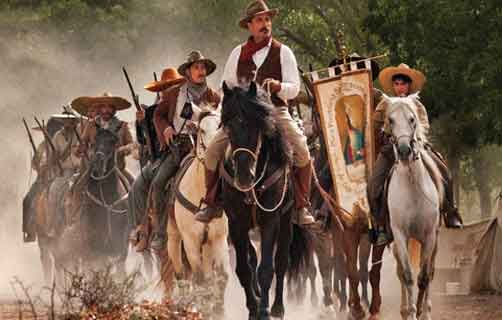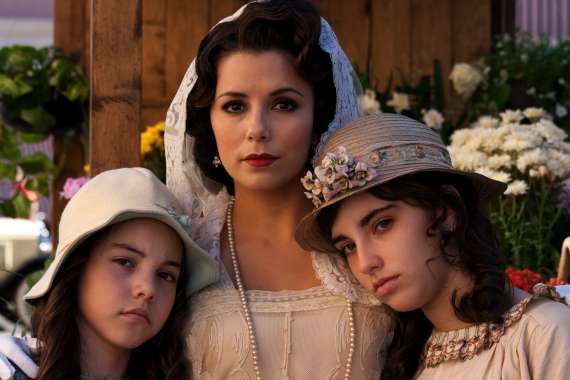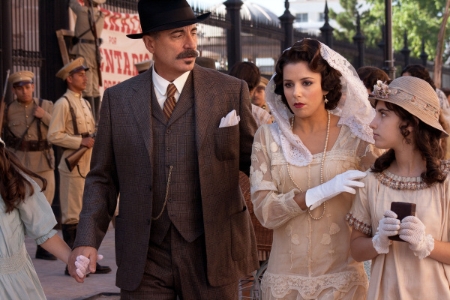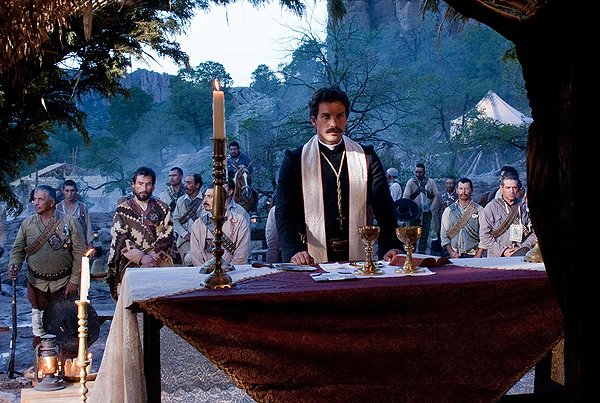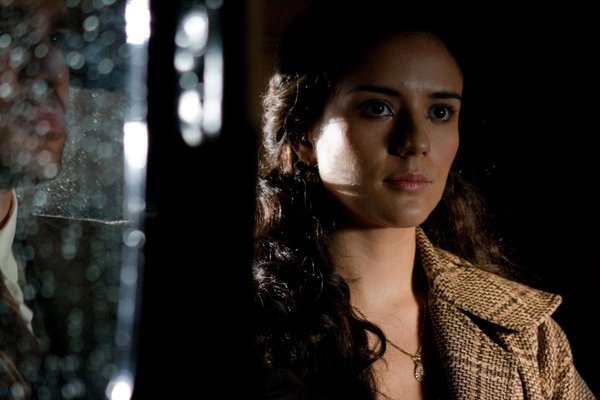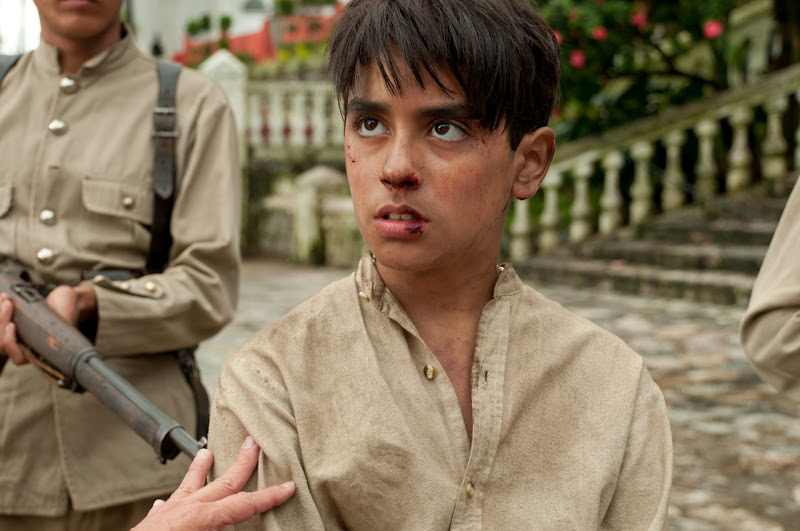Viva Cristo Rey!
I saw FOR GREATER GLORY last night, and it was the most moving, dramatic, painful yet exhilarating film I can recall having seen in the last ten years.
The acting was flawless, the cinematography beautiful, the period sets and costumes perfect, the plot well structured, and the story was true: it concerns the armed rebellion that swept through Mexico after the government outlawed the faith and all the churchbells fell silent.
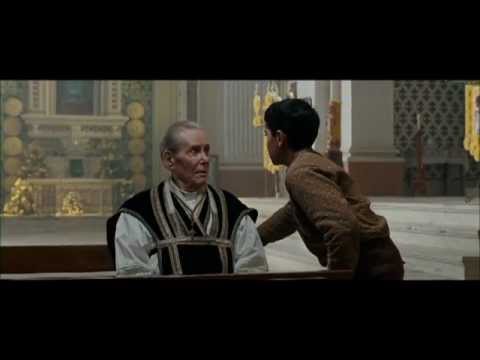
The cast includes Andy Garcia, Eva Longoria, Peter O’Toole, and Mexican star Eduardo Verastegui.
The story arc was centered around a retired general of the revolutionary days, Enrique Gorostieta Velarde (played by Andy Garcia). who now manufactured pink soap, but he is an atheist, despite his Catholic wife Tulita (Eva Longoria) .
When the ‘Christeros’ try to hire him for money to lead their scattered grassroots uprising, his wife, holding back tears, tells him to take the job and fight for a cause he does not believe in, because he may yet come to.
Another character was a priest turned rebel leader Father Vega (Santiago Cabrera) who takes up the sword, and his conflict with the others of his order who will not condone any use of violence.
And yet another was a ‘Clint Eastwood’ style badass cowboy Victoriano “El Catorce” Ramirez (Oscar Isaac) who had rebelled with his own men for his own reasons, who neither believes in the priest nor trusts the general, but whose acts of derring-do are justly famous. There is a scene where he bests an entire group of federal soldiers singlehanded, as if in a typical heroic Western, but because the relentless realism of the surrounding picture, the scene comes off, by an ironic magic, not like a movie scene, but like a movie scene of real event so heroic it should be a scene in a movie.
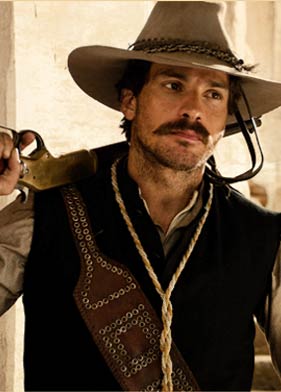
Braver yet were the women led by Adriana (Catalina Sandino Moreno ) who smuggle arms and ammunition to the rebel forces.
Bravest of all is a little boy José Luis Sánchez del Rio (Mauricio Kuri) who wants to join the rebelli0n after he sees his parish priest Father Christopher (Peter O’Toole), a saint who will not lift a finger to defend himself, martyred before his eyes. One of the more moving story lines is the growing friendship between the old general and the idealistic boy, who comes to regard him as the son he never had. The craven mayor Picazzo (an actor with the magnificent name of Nestor Carbonel), overawed by the brutality of the federals, urges José to betray his cause, his friends, and his faith to save himself, asking him only to cry out ‘Death to Christ the King!’
Each character, heroic or craven, was dramatic enough for a film in his own right, but together make that kind of story which has the realism and unevenness of life, because life does not follow the needs of drama.
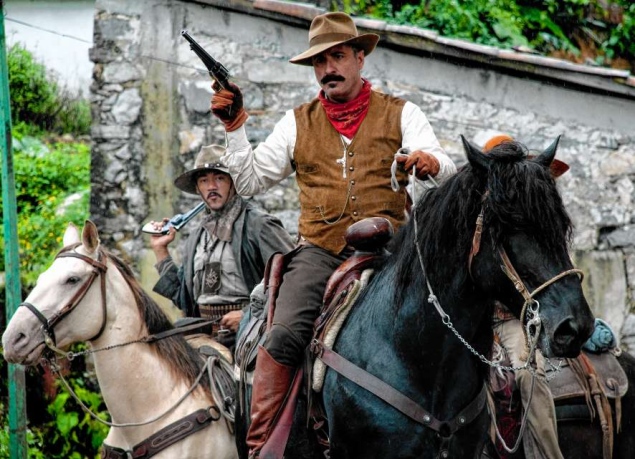
It is worth staying for the credits to see the real fate of the historical characters, including what happened to a minor sidekick character named Lorenzo, afterward called Lazarus. Some things are too odd and miraculous to put into a film. Real life is so strange that people would not believe it.
If the number of characters and plotlines in the film make it difficult to follow, well, go see it twice.
—————————————————-
What I cannot understand is that critics panned this film. It got one star on Rotten Tomatoes. One star? That takes more than a considerable amount of willful blindness in a considerable amount of people to underestimate and misjudge a film that badly. That is not a sign of one or two crackpot reviewers with eccentric tastes: that is a sign that a vast swathe of the population has gone crackpot.
One would think that Leftists would cheer for any epic of rebellion against authority, especially one where America is the villain (or, at least, the shady character motivated by oil greed) and the heroes are all members of that Caucasian race who are afforded the honor of being a minority, at least in Lefty thinking, our brothers to the south of the border. One would think the Rightists would cheer for any epic of rebellion against authority, especially one where the cause was explicitly the cause of religious liberty: can you think of ANY film in the last ten years were the priests were the good guys? And, one would think anyone who likes good old fashion cowboy films would like this, because there were horsemen and ranchers and sixshooters a-plenty.You would think lovers of independent cinema would approve of any film that was not a studio-make generic McFilm.
Maybe some people don’t like stories with an unhappy ending. Sorry, friends, but all the martyrs beatified by the Pope who appear in this film do indeed get martyred, including a child martyr in a scene painful to watch.
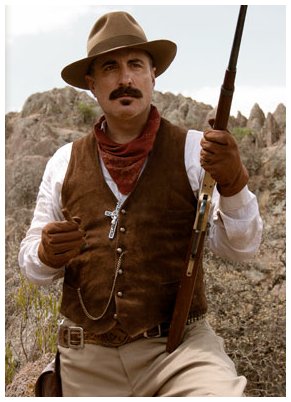 It was only playing in one screen at my local art house theater.
It was only playing in one screen at my local art house theater.
Allow me now to quote Brent Bozell’s review on FOR GREATER GLORY, where he lambastes his fellow film critics who are suddenly dismayed by historical inaccuracies in historic films. They are, of course only dismayed about Catholicism being portrayed in a good light.
http://newsbusters.org/blogs/brent-bozell/2012/05/29/bozell-column-viva-cristo-rey#ixzz1wZhNJAsK
Bozell notes:
Just the idea … brings out the worst in the secularist press. Slant magazine pans it as a film “that gives the screen epic a bad name.” It attacks the “solemn speechifying,” the “overstuffed cast of characters,” the “half-baked material,” and given “this religion is specifically Catholic… [the movie] …makes the material a tough sell.” When Garcia’s character ultimately converts to Christianity, “we’re back to embracing a worldview where the implied mandate to practice Catholicism feels near as onerous as the inability to do so.”
But how historically accurate is this “implied mandate to practice Catholicism? Here’s a hint. Slant dismisses “a whole host of bathetic subplots” claiming “its martyrdom fetish reaches its grotesque nadir when a young boy dies rather than make the most token anti-Catholic gesture.”
As for the alleged mushy effusiveness and the martyrdom fetish, there are some historical facts. Over 90,000 died. Dozens have since been canonized by the Church, including 25 by John Paul II alone. The young boy was Jose Luis Sanchez del Rio, who was tortured with his heels slashed before being made to walk to his execution. “He cried and moaned with pain,” stated an eyewitness And then he was shot dead.
The “most token anti-Catholic gesture” which would have saved his life was his refusal to shout “Death to Christ the King,” instead proclaiming “Viva Cristo Rey!”
Jose was 14. He was beatified by Benedict XVI in 2005.
It is still illegal to celebrate Mass outdoors in Mexico.
My comment: I wonder how the reviewer of Slant would react when asked to spit on the cross of whatever secular idol or image he worships would be. Would he affirm the inequality of Negros if a Nazi held a gun to his head, or curse gay marriage? If so, he has less manhood that this little boy, who was a real person who in real life neither ratted out his friends nor betrayed his savior. I suspect his irrational antipathy toward this film rests in part in a recognition that he can never be a man of the character portrayed here by nearly ever character,
Catholics have a religious duty to patronize films such as this, as do lovers of serious film or independent film. Mexicans have a patriotic duty to patronize such films, as do lovers of liberty either of the Right or the Left.
Or, the film fans and film reviewers of the Leftist persuasion cannot see their way clear to support a film such as this, then it is finally time for the Left to admit that it hates with sneering orcish hatred the liberties of the civilized West, and would eagerly embrace the totalitarianism of the East, and gladly forsake and forswear their freedoms in return for the tyrants of the world destroying the Church. The vision of seeing anyone peacefully worship Christ is so painful to them, that they would eagerly be slaves, if only the Christians would be martyrs.
Admittedly, the film making had some minor flaws no which I will not dwell, but nothing to explain the outpouring of contempt for a film better than any number of other, and less accurate, historical epics one could name.
Only a hatred for the subject matter could explain such a reaction to a film. If you had a Western war-flick coming-of-age story about sacrifices made and battles fought in the name of some other cause, such as saving the whales, FOR GREATER WILLY, the Lefty critics would be peeing themselves in their meretricious eagerness to praise and laud and adore the film.
I thought anti-Catholic bias was a thing of the past. Well, it is a thing of the future and present as well, it seems.
